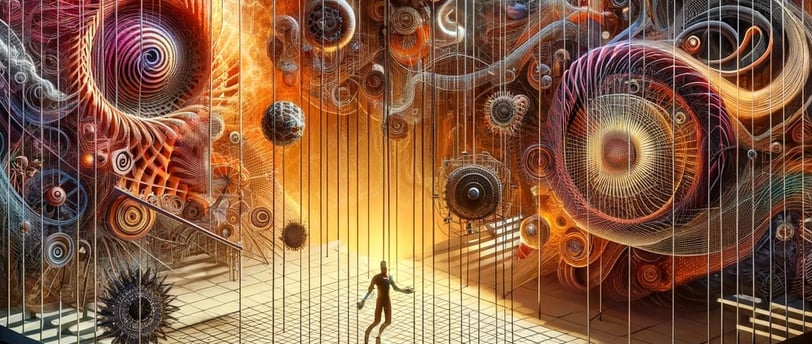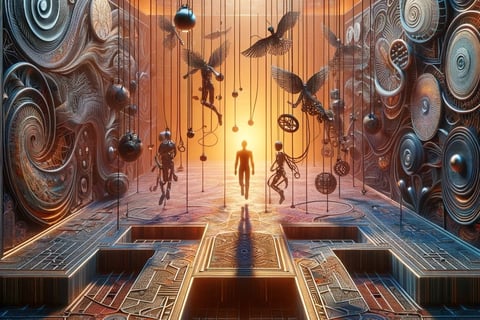The Illusion of Free Will
Unraveling Our Predestined Choices
MINDSETSTORIES


Imagine you're choosing between an apple and a banana. This choice seems like an exercise of free will, but is it? The concept of free will implies that we are architects of our destiny, making decisions independently. But what if I told you that free will might just be an illusion?
The Experiment of Benjamin Libet
In the 1980s, philosopher Benjamin Libet used an electroencephalogram to demonstrate a startling revelation: our brain decides actions before our conscious awareness kicks in. Libet's experiment showed that a decision to move a part of our body is made subconsciously around 300 milliseconds before we are consciously aware of it. This finding suggests that our conscious decisions might just be the brain telling us what it has already set in motion.
Predicting Choices Before They're Made
Further studies reinforced Libet’s findings. Participants in an experiment were asked to press one of two buttons while their brain activity was monitored. Astonishingly, certain brain regions indicated their choice 7 to 10 seconds before the participants consciously made their decision. This challenges the notion of free will, suggesting that our choices are pre-determined by subconscious brain activity.
Influence of Upbringing and Genetics
Our upbringing, societal environment, and genetics also influence our decision-making process. For instance, a person born into a religious family is more likely to be religious. Genetics plays a significant role too. Charles Darwin’s theory of evolution suggests traits like intelligence are inherited, influencing our decision-making ability. This leads to the question: do we truly have the freedom to make certain intelligent choices?
The Role of Brain Chemistry
The impact of brain chemistry on decision-making is profound. For example, changes in brain chemistry due to tumors have led to drastic changes in behavior, challenging the notion of free will. In the legal field, MRI scans are increasingly used to understand criminal behavior, suggesting that some actions are the result of neurological malfunctions rather than free will.
The Determinism Perspective
Determinism suggests that all events, including human actions, are the result of existing causes. This perspective does not render us entirely powerless but offers a different way to view our actions and the world around us. Understanding determinism can foster humility and empathy, as we recognize that our successes and failures are not solely the product of personal efforts but a combination of various factors beyond our control.
The Dilemma of Morality and Free Will
If free will doesn’t exist, what happens to morality? This poses a significant challenge as many societal structures are built on the premise of free will. However, even if free will is an illusion, it’s an illusion that benefits society. Believing in free will promotes personal responsibility, a crucial factor in shaping positive behavior and societal order.
The concept of free will is complex and multi-faceted. While science suggests that many of our choices are predetermined by subconscious processes and external factors, the belief in free will serves a crucial role in maintaining societal order and personal responsibility. Therefore, it might be beneficial to embrace the illusion of free will, acknowledging the factors that shape our decisions while taking responsibility for our actions to lead a fulfilling life.



